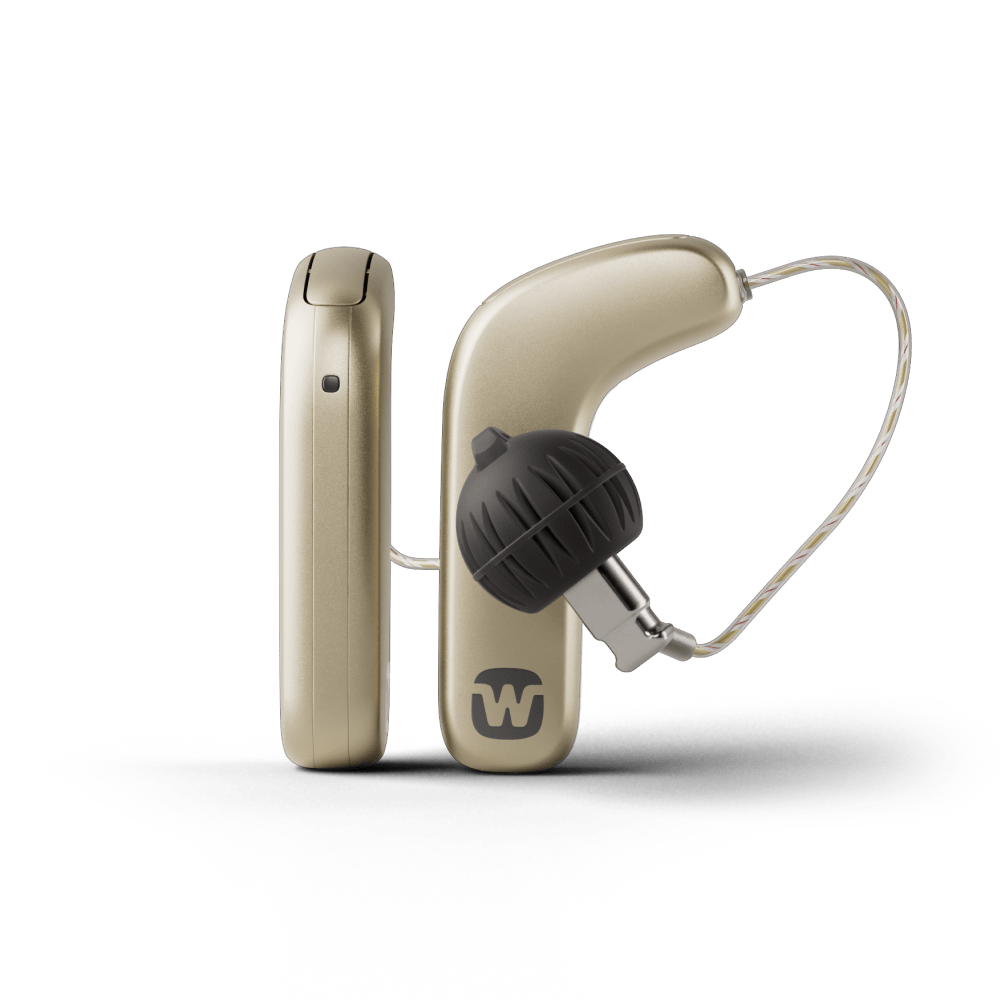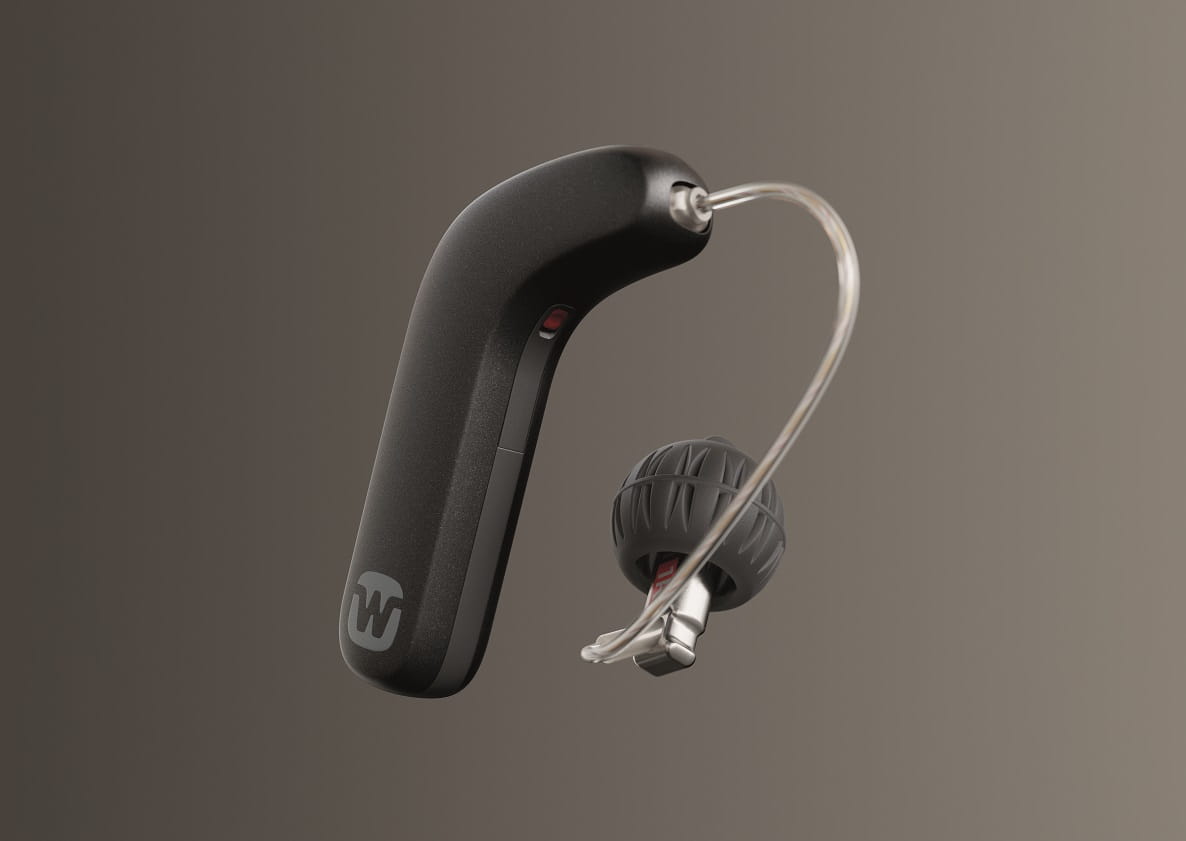Where Science Meets Tinnitus Relief
How It Works
Hearing & Tinnitus Evaluation

Set Your Goals & Create A Personalized Plan

Device Recommendation

Coaching & Sound Therapy

Evidenced-based Strategies to Meet Your Goals

Improve Your Life

Tinnitus Care
Living with tinnitus can be challenging, but through personalized care, we help individuals manage and reduce the impact of tinnitus on their daily lives. My tinnitus services include:
- Comprehensive Tinnitus Evaluations: A thorough assessment to understand the type and severity of tinnitus, using specialized tests.
- Tinnitus Sound Therapy: Offering sound-based treatments, including hearing aids and sound generators, to provide relief and reduce awareness of tinnitus.
- Cognitive Behavioral Interventions: Using evidenced-based strategies from the gold standard of tinnitus care, Cognitive Behavioral Therapy, to offer strategies to improve your quality of life.
- Tinnitus Retraining Therapy (TRT): A scientifically backed approach to desensitizing the brain’s reaction to tinnitus.
Answers to Common Questions
Dr. Douglas is trained in a variety of techniques, including tinnitus retraining therapy, cognitive behavioral interventions, and mindfulness based stress reduction to help patients with tinnitus improve their quality of life.
Tinnitus is the perception of sound—such as ringing, humming, buzzing, crickets, or other noises—in your ears or head that has no external source. For most people, tinnitus is constant. It is not a disease, and it does not worsen your hearing. Tinnitus is a symptom, often associated with:
- Hearing loss
- Noise exposure
- Ototoxic medications
- Stress
- Head or neck injury
- Temporomandibular joint (TMJ) dysfunction
In some cases, the cause is unknown—this is referred to as idiopathic tinnitus.
Currently, there is no known cure for tinnitus. Research, including ongoing studies at the University of South Florida, are exploring potential treatments, but no definitive solution exists yet. There are no medications, supplements, or homeopathic remedies proven to eliminate tinnitus.
However, you can learn to manage your reactions to tinnitus, making it less intrusive. Most people experience improvement over time, and with the right strategies, habituation is possible.
- Education and Counseling: Empower yourself with knowledge about tinnitus, gain control, and improving your quality of life through effective management strategies.
- Sound Enrichment: Use sound enrichment by default over the next 6 to 18 months to help restore hyperactive brain activity to typical or near typical levels, leading to reduced attention to tinnitus and emotional acceptance over time. Please note that sound therapy is an integral part of tinnitus management. Many hearing aids have built in sound generators. If you have hearing aids from Oticon, Phonak, GN Resound, Widex, Signia, or Starkey they most likely have a sound generator that we can activate and program. We cannot program hearing aids purchased from Costco, Beltone, MiracleEar, or over the counter hearing aid companies that sell locked hearing aids.
- Relaxation & Self-Regulation: Utilize your senses to break the tinnitus fight-or-flight cycle by incorporating techniques like exercise, diet improvement, progressive muscle relaxation, and meditation.
- Shifting Attention: Identify moments when you are not aware of your tinnitus by engaging in activities such as talking with friends and family, listening to music, attending events, or watching your favorite TV show.
- Optimize Sleep: Reduce stress and improve overall well-being through prioritizing quality sleep.
- Reframing Negative Thinking: Identify and change unhelpful negative thoughts and behaviors, positively influencing emotional responses.
Habituation occurs when your brain stops reacting emotionally to tinnitus and begins to filter it out as unimportant background noise. While the sound may still be present, it becomes less noticeable and less distressing.
A healthy body, mind, and brain are key to achieving habituation. With consistent practice, the process becomes more automatic and effortless over time.
The Tinnitus Toolbox is designed for individuals who are motivated and committed to consistently practicing the strategies outlined in this guide. If you’re seeking a quick fix or miracle cure, this toolbox may not be the right fit. Habituation takes time, effort, and patience.
Results vary from person to person. Here’s a general timeline:
- 2–4 months: Noticeable improvements in well-being
- 6–12 months: Possible plateau phase—this is common and can be challenging
- 12+ months: Most people report up to 80% improvement in their emotional response and awareness of tinnitus
While complete silence is rare, many individuals experience periods of quiet or a significant reduction in awareness.
Yes. Stress can intensify tinnitus by activating the body’s fight-or-flight response, which increases awareness and emotional distress. Learning stress management techniques, such as meditation, deep breathing, and regular exercise, can help reduce the impact of stress on your tinnitus.
Insurance coverage various by plan. Typically insurance will cover the cost of tinnitus evaluations. Some insurance providers have hearing aid benefits. Tinnitus management is not typically covered. Our team is happy to answer questions about coverage, call us at 813-974-8804.
No, the USF Hearing Clinic does not offer Lenire. While Lenire shows promise, research is still limited and the device can be very expensive. We focus on proven, evidence-based approaches that have helped patients for over 30 years; methods that are effective, affordable, and tailored to your needs.
Ready for tinnitus relief? Contact us at 813-974-8804 to schedule your first appointment or complete this form to have one of our staff reach out.
Do tinnitus supplements that work actually exist? Audiologist reviews the research on Ginkgo, zinc, magnesium, melatonin & more. Evidence-based guide.
Newly diagnosed with tinnitus? Learn causes, how doctors diagnose it, and immediate relief steps, including Tampa Bay area resources, in Dr. Douglas’ evidence-based 2025 guide.
What’s New in Tinnitus Research? Key Updates from October 2025 Researchers are working hard to find better treatment options and gain a …
As an audiologist and hearing aid user, I’ve reviewed the latest hearing aid technologies designed to support tinnitus management. Below are the top devices of 2025, selected based on clinical performance, sound therapy features, and user feedback.
Discover how hearing aids can help reduce tinnitus symptoms. Learn the science, best features, and expert tips for lasting relief.
What’s New in Tinnitus Research? Key Updates from September 2025 Researchers are working hard to find better treatment options and gain a …
Widex Moment SmartRIC 440 By Dr. Douglas | Updated October 3, 2025 Updates: Widex Moment is currently the best hearing aid …
Managing Tinnitus and Hearing Loss During a Hurricane: Tips for Maintaining Calm in the Storm Hurricane Helene’s destructive impacts have created havoc …


